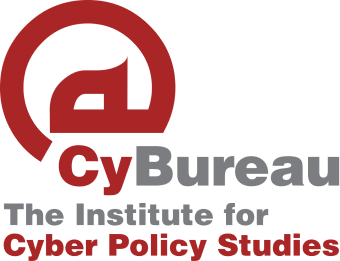Gender & Violence in Cyberspace: Why Are Women the Most Vulnerable?
The Budapest Convention emphasizes the protection of women against cybercrime, and their fragile and sensitive situation in all areas. But the rise of awareness about the evolving ways of harassment and violence online and cybercrime further complicate their situation[i]. We believe that despite these commitments, women are the most vulnerable to the threats of virtualization in the least developed countries[ii]. Because, marginalizing their roles in security and cybersecurity strategies and awareness-raising plans against cybercrime and all other forms of online violence, increases the chances that malicious strategists manage to target this weak link in our societies and undermine confidence in processes and strategies for security and resilience.
In terms of formality and generality, cybercrimes affecting women and men are almost identical, and attacks by networks of all kinds are all aimed at achieving the same goals, regardless of gender. But statistics try to believe otherwise and take a different path, and reinforce our hypothesis that women are specifically threatened by specific acts that affect their psychological and material integrity and increase their suffering more than men[iii]. On the other hand, these findings are a little recognized idea in national cyber security and response plans and strategies where the role of women is becoming less and less important in the face of online hazards.
So, how and why does the development and rise of virtual violence affect the safety and integrity of women in a specific and doubled way, and change their daily lives? And how can we limit the impact of these unexpected actions and activities on women?
The professionalization of cybercrime fuels the rise of online activities against women
Cybercrime is no longer an act or activity as we used to know it, the development of computer tools, the rise of intelligence and ingenuity of criminals in the use and manipulation of this computer tool and how they are currently able to take initiatives and destabilize situations and well organize attacks. Rather than focusing solely on profit and gain, cybercriminals are currently targeting increasingly sophisticated sectors and sensitive areas that affect society as a whole and also the security and stability of nations. This demonstrates in the end that the professionalization of their processes and the sophistication of its activities is now a reality[iv]. The fact that we are no longer confronted as before with traditional activities, most of which are envisaged and governed by the law and the various known regulations and which are mostly aimed at the achievement of objectives that relate to direct material gain and to the multiplication of incomes or the search for psychological or moral satisfaction. We need to take the initiative to rethink this situation of multiple dangers and dangers, especially against women.
Nevertheless, innovation and creativity in use and use are often the basic principle in carrying out these activities, resulting from what we have demonstrated above that efficiency and performance will obviously be synonymous with all online attacks and assaults[v]. This means that if these attacks become real dangers and dangers that negatively affect development processes, growth planning, social stabilization efforts and visions of openness, etc., States will focus their efforts on these areas and will retain their strategies of responsiveness and security for what is more important, as opposed to the one that is lower in the strategic classification and, above all, individuals. And as a result, women, by adding discrimination, social classifications, value judgments in developing countries, etc., will probably be the most affected and most exposed to online suffering, violence and persecution.
Noting that these measures mainly affect many sensitive areas, they have already provided us with evidence of what they can do against gender in the medium and long term. It is noted that the effects are already harmful and harmful to women in a specific way and should not wait for theoretical, legal and organizational progress to their objectives of preserving and protecting the integrity of women from such disturbances. In our argumentation process, what further complicates the situation is that a very large number of women are deprived of the potential of digital awareness, far from mastering the computer tool in their favour, and have never learned the patterns of the digital space, etc., which directly and undoubtedly generates specific impacts on women[vi].
Furthermore, the sophistication of the processes of this new range of online dangers puts women facing a new series of attacks and harmful acts, which exceed in their classifications physical and material harassment, affecting moral integrity and finally psychological health, etc., [vii].. New online blackmail procedures and new forms of piracy, the theft of women’s personal data and acts that violate their digital integrity, including waves of anti-gender and anti-women information, etc., jeopardize the social and economic stability of women, their boldness and the continuation of their work, and automatically destroy their incomes and undermine their confidence and their psychological capacity to act and contribute to the management of society.
Women invade the digital realm and are exposed to multiple risks and dangers
The digital field offers unprecedented income and career potential[viii]. And because it is the most attractive area to be somewhat safe and in the social and financial stability, we are witnessing large waves of immigration of women in this area, trying to take advantage of its potential and to balance their family and above all financial situation[ix], that is, despite the difference between their activities in the field and the professions that they actually exercise, the aim and objective will be unique for all women, that is to improve their lives and income.
Nevertheless, expectations are not at the level of ambition. Because being aware of the advantages of digital is no longer the case in the opposite direction. Because the millions of women who are currently trying to integrate into the digital field, and who work mainly on social media and online services platforms, are no longer at the same level of vigilance and awareness about the disadvantages of computer technologies[x]. This exposes them to risks and dangers that can put their efforts to consolidate financial and economic stability under the fire of hackers and online traps.
The increasing emphasis on these online activities as the sole source of income strongly keeps women increasingly dependent and vulnerable to these online sources[xi]. Thus, in a period of instability or a wave of cyber attacks, their economic, financial and income situations are generally at risk of being threatened and disappearing[xii]. And because these women, despite their precarious situation, have joined the digital field for purely economic reasons, the effects will be detrimental and disastrous if they lose their second and essential source of income.
Other factors that come and complicate the situation are the presence of certain subjective motives, accentuating the social suffering of women. When they are the sole contributors and providers of families and children or even take responsibility for their parents, depending on the circumstances. Consequently, women with disabilities, marginalized and less educated girls or women, or those of disadvantaged origin or area in society, etc., are the most present on platforms and seek financial support, or by offering specific services, but computer ignorance makes them vulnerable and more affected if the situation turns in the opposite direction and their revenue sources have attacked[xiii].
How is it necessary to include women in strategies to combat and raise public awareness of cyber threats?
Is it necessary to rethink strategies for combating and deterring cyber threats, taking into account not only the question of how to suppress hazardous online activities through technical and legal measures? Nevertheless, awareness-raising and gender-sensitization plans for cyber threats and the professionalization of crime should be an urgent duty and mission[xiv]. Because, the use of the consolidation of women’s achievements should not only be the monopoly of activities and practices away from the computer space, yet it is found that these measures are an element of contribution in the stabilization of their social, economic and financial situations.
Should strategies to combat cyber threats and deterrence be reconsidered, taking into account not only the issue of eliminating hazardous online activities through technical and legal measures? However, awareness-raising of cyber threats and the professionalization of crime and gender sensitization plans should be an urgent task and mission[xiv]. Because the consolidation of the achievements of women should not only be the monopoly of activities and practices away from the computer space, yet these spots and measures should push the efforts in the digital space, from what it presents, as an element of contribution to the stabilization of their social, economic and financial situation.
Consideration must be given to the current situation of women as key actors and partners in the process of development and growth. So it is a necessity to make them vigilant and help them feel safe and stable, because this stability and security is important to society as a whole.
[i] van der wilk, a. (decembre 2021). protéger les femmes et les filles contre la violence à l’ère du numérique la pertinence de la convention d’istanbul et de la convention de budapest sur la cybercriminalité pour la lutte contre la violence à l’égard des femmes en ligne et facilitée par la technologie. conseil de l’europe. https://rm.coe.int/la–pertinence–de–la–convention–d–istanbul–et–la–convention–debudapest/1680a5ebbc
[ii] morley, ch. (2017). femmes et métiers de l’informatique : un monde pour elles aussi. 1 (n° 62). pp 183-202. https://doi.org/10.3917/cdge.062.0183#x
[iii] conseil du statut de la femme. 2022. l’hostilité en ligne envers les femmes. https://csf.gouv.qc.ca/wpcontent/uploads/etude–hostilite–en–ligne–envers–les–femmes.pdf
[iv] luis courrons, ph. (17 avril 2021). la professionnalisation des hackers : histoire de la cybercriminalité. https://www.journaldunet.com/solutions/dsi/1498021–la–professionnalisation–des–hackers–histoire–de–lacybercriminalite/
[v] caulier, s. (16 novembre 2020). comment les acteurs du cybercrime se professionnalisent.
[vi] kerbarh, s. & peyrol, b. (2022). les femmes de l’espace francophone et le numérique : une opportunité à saisir, des dangers à éviter. http://apf.francophonie.org/img/pdf/5.1–projet–de–rapport–de–la–section–francaiseautonomisation–des–femmes–ere–du–numerique–dans–l–espace–francophone.pdf
[vii] benarus, r. (2021). violence en ligne : les écrans de la honte. eu neighbours south. https://www.euneighbours.eu/fr/sud/eu–in–action/stories/violence–en–ligne–les–ecrans–de–la–honte
[viii] yousafzai, m. (29 mars 2021). favoriser l’émancipation économique des femmes grâce à l’inclusion financière. portail findev. https://www.findevgateway.org/fr/blog/2021/03/favoriser–lemancipation–economiquedes–femmes–grace–linclusion–financiere
[ix] internet5 : favoriser l’autonomisation des femmes au moyen d’internet. (2019, mai 29). https://www.idrc.ca/fr/recherche–en–action/internet5–favoriser–lautonomisation–des–femmes–au–moyen–dinternet
[x] collet, i. (2011). effet de genre : le paradoxe des études d’informatique. tic & sociétés. vol. 5, n° 1. p 25. https://doi.org/10.4000/ticetsociete.955
[xi] en partenariat avec g7. (2019). l’inclusion financière numérique des femmes en afrique. https://docs.gatesfoundation.org/documents/womensdigitalfinancialinclusioninafrica_french.pdf
[xii] un nouveau rapport dévoile la voie à suivre pour accélérer l’inclusion financière numérique des femmes en afrique centrale. (2022 juillet 12). etrade for all. https://etradeforall.org/fr/news/un–nouveau–rapport–devoile–lavoie–a–suivre–pour–accelerer–linclusion–financiere–numerique–des–femmes–en–afrique–centrale/
[xiii] pavlovitch, m. (8 mai 2022). les femmes portent le poids des conséquences du changement climatique.
institut du genre en géopolitique. https://igg–geo.org/?p=8675
[xiv] caulfield, m. breakstone, j. & smith, m. (novembre 2021). l’urgence de repenser l’enseignement de la littératie numérique, comment développer les aptitudes nécessaires pour faire face aux informations fausses et trompeuses en ligne, au moyen d’outils pédagogiques ayant fait leurs preuves. https://ctrl–f.ca/fr/wpcontent/uploads/2021/11/ctrl–f–repenser–l–enseignement–de–la–litteratie–numerique.pdf
This post is also available in:
العربية
हिन्दी
简体中文
繁體中文
Français
Deutsch
עברית
हिन्दी
Italiano
فارسی
Română
Русский
Español
Türkçe
Ukrainian
polski

